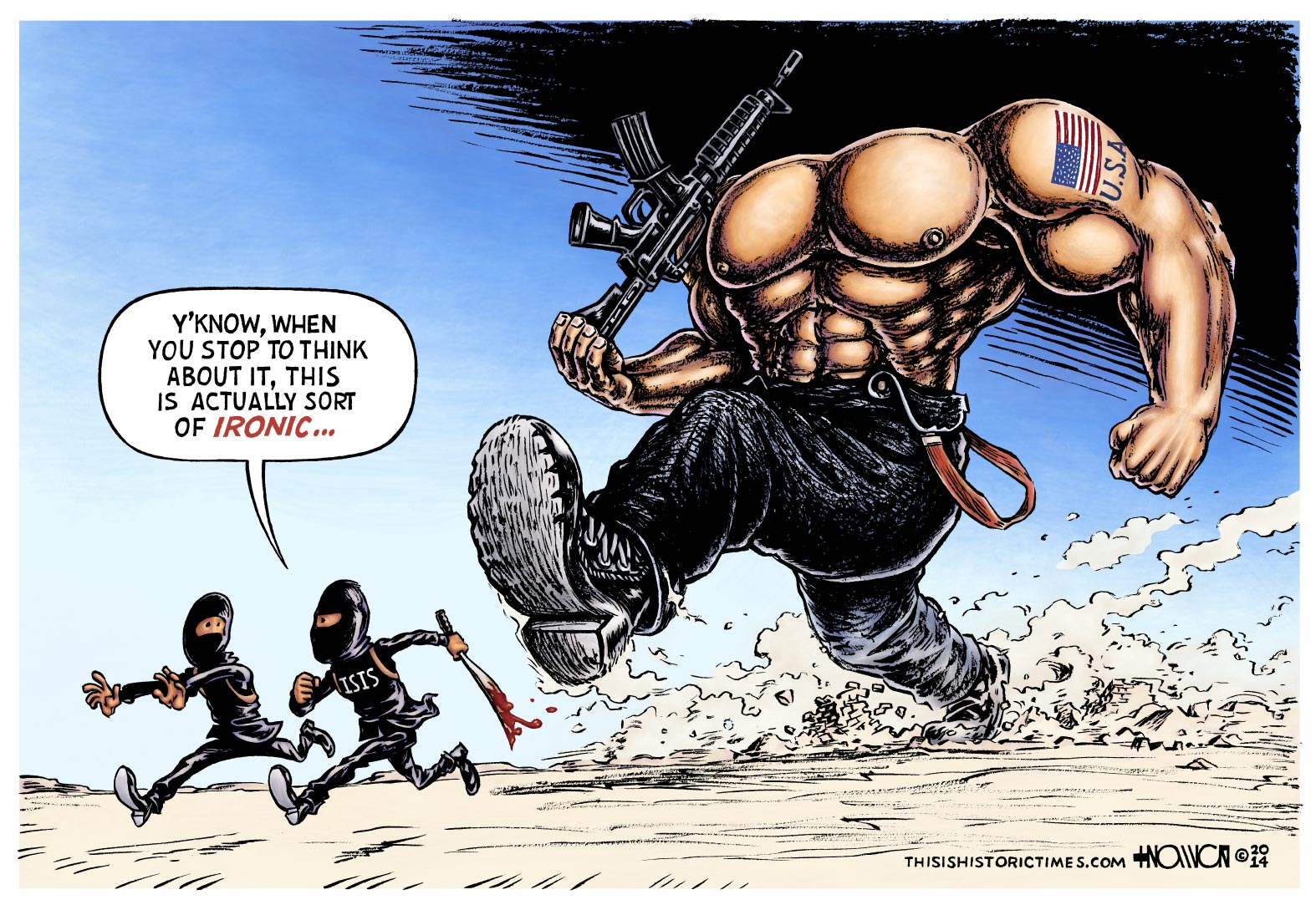Losing Our Heads

In the aftermath of the miserable failure that was Operation Iraqi “Freedom,” most Americans today are understandably hesitant about (or even dread) the notion of U.S. military intervention in any other foreign conflicts. Even when the potential humanitarian purposes appear legitimate and obvious, people remember what a catastrophe that previous war was, and how their leaders proved themselves, time and again throughout, incapable of wielding America’s awesome military might either responsibly, or effectively.
As the Lowest-Common-Denominator-in-Chief once said, “You fool me, I can’t get fooled again!!”
Unfortunately, Iraq continues to be its own special, ethical quandary, with regard to this attitude, since much of the violence happening there now is the direct result of the U.S. stomping around before, evidently without much thought for the consequences, in an effort to topple a dictator they themselves propped up only a few decades previously.
The attendant “great responsibilities” of “great power” aren’t just defending the powerless, and righting the wrongs of others–they also involve correcting one’s own mistakes. But in situations like this, there does come a point when you have to wonder whether the horrific bloodshed likely to follow from just cutting losses (no pun intended) will still be less horrific, in the long run, than continuing to wrestle with an endless stream of enemies sown and nurtured by the conflict itself, whose only reaction to “defeat” is simply to evolve into deadlier and more implacable forms, like antibiotic-resistant bacteria.
The goal of my cartoon, here, was to highlight the darkly absurd, feedback loop-type relationship between terrorist actions and U.S. military responses, as well as bring to mind some of the above-mentioned ideas.
Cartoon historians will also recognize the headless soldier from this famous anti-war piece, drawn by early 20th-century cartoonist and radical journalist Robert Minor, which discouraged American participation in World War I, and ridiculed the “perfect soldier” as being one who mindlessly follows orders–though I hope the main idea reads even without knowledge of the reference.


2 Responses to “Losing Our Heads”
You can’t behead the headless, but you can still maim them in other ways…
It reminds me of the Transformers saga “The Key to Vector Sigma”, in which Megatrom defends the use the use of a headless robot to fight his way out of a corner with the words “A warrior doesn’t need a head; Just a good strong body.”
Leave a Response